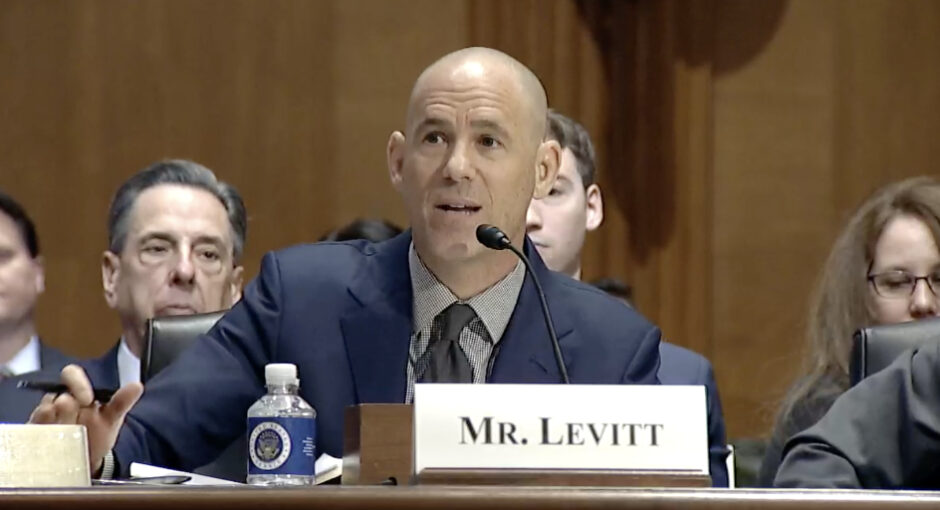Two Republican U.S. senators expressed concerns about pharmacy benefit manager encroachment on 340B covered entity savings during a Senate Finance Committee hearing on PBMs last week.
“I often hear concerns from South Dakota hospitals and health centers when it comes to engaging with PBMs, especially on the 340B program,” Senate GOP whip John Thune (R-S.D.) remarked during the March 30 hearing on PBMs’ impact on patients, taxpayers, and the prescription drug supply chain. “It’s important the program continues to serve its intended purpose of helping our hospitals and health centers support the community,” said Thune, the chamber’s second highest ranking Republican and a long-time champion of 340B providers.
Sen. Marsha Blackburn (R-Tenn.) said she often hears that PBMs “cramp the community health centers on patient care.”
PBMs “have lessened the 340B program,” Blackburn said. Tennessee has 230 community health centers “and you have the PBMs stepping in and it hurts 340B” because PBMs “basically [are] taking those savings away.” Blackburn is the senior Republican Senator from Tennessee and served on the Energy and Commerce Committee (which has jurisdiction over the 340B program) during her time in the U.S. House.
The committee invited five witnesses to testify, none were representatives of PBMs or the health care payers they represent.
Thune invited one witness, Jonathan Levitt, co-founding partner of the Frier Levitt law firm, to address PBM practices’ impact on 340B covered entities.
340B “Completely Frustrated by the PBMs”
Levitt said PBMs’ influence in the drug supply chain is nowhere greater than in the 340B program. “At the end of the day, the 340B program is completely frustrated by the PBMs, their specialty pharmacies, their retail pharmacies, and by their [340B] third party administrators,” he said.
Levitt told Thune that PBMs or their affiliates take more than 50% of the financial benefit that Congress intended safety-net providers to get from participating in 340B.
“Few realize that PBMs have drained the system of a huge percentage of benefit intended for patients and communities in need,” Levitt said in his written testimony. “Congress never intended the 340B program to benefit large for-profit corporations that provide little, if any,
direct patient care for vulnerable populations. Furthermore, PBMs siphon money from the 340B drug program by improperly assessing fees imposed on 340B prescriptions filled by independent pharmacy providers, by exacting huge fees from covered entities. PBM-owned pharmacies act as contract pharmacies, by imposing huge percentage-based administrative fees when PBM-owned third party administrators reconcile 340B claims on behalf of covered entities, and by paying pharmacies substantially less for 340B claims for no reason other than to retain profits which is money intended for the underserved.”
In his opening statement, committee chair Ron Wyden (D-Ore.) said, “I’m proud to say that this is a hearing with strong bipartisan interest.” He said he and committee ranking Republican Mike Crapo (Idaho) “have agreed to take on this issue together. That means looking at pharmacy benefit manager practices with a thorough eye and taking any legislative steps necessary to ensure taxpayers and patients aren’t getting a raw deal.”
Crapo lauded Medicare Part D’s “resilient, market-oriented structure” in his opening statement.
“That said, much has changed in the past two decades, and we have an obligation both to build on the aspects of Part D that work well and to address access and affordability gaps where we find them,” Crapo said. “In weighing and developing policy solutions, my priority is always the patient. We need to identify avenues for lowering out-of-pocket costs, increasing competition, and promoting access to life-saving innovation—and we need to do so in a fiscally responsible manner.”
“Given the tremendous common ground and shared goals around this issue, I am confident we can fulfill these objectives and deliver real results for seniors,” he said.


